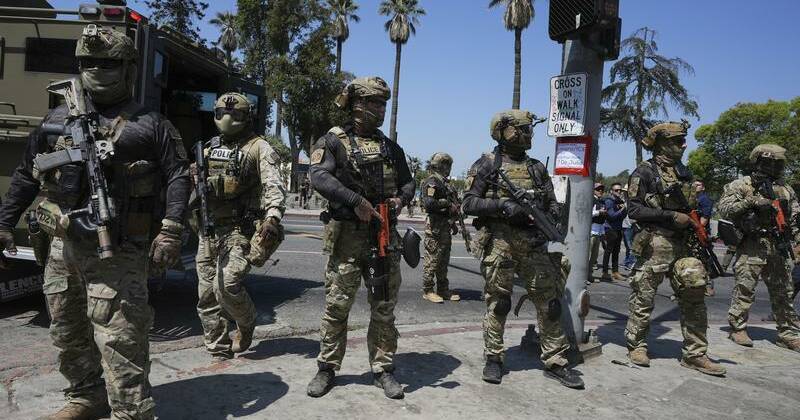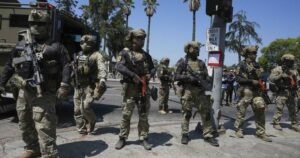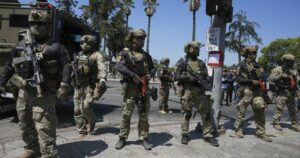
A federal appeals court has upheld a decision that prevents US immigration agents from making arrests in Los Angeles without probable cause. This ruling from the US Court of Appeals for the Ninth Circuit reinforces a lower court’s temporary restraining order that prohibits federal officials from detaining individuals based solely on their appearance, language, or geographic location.
The three-judge panel rejected the Trump administration’s request to suspend this order. They concluded that the plaintiffs are likely to demonstrate that federal agents have conducted arrests based on characteristics such as race, ethnicity, and language. This legal action follows a lawsuit led by the American Civil Liberties Union (ACLU) in June, where the city of Los Angeles and several Southern California municipalities joined in accusing federal agents of employing unlawful practices, including racial profiling, to meet immigration enforcement quotas.
Legal Background and Implications
In July, a California judge had already ruled against the administration’s tactics, specifically prohibiting the use of racial profiling as a means to identify deportation targets. The court also affirmed that immigrants retain the right to access legal counsel during their detention. The recent decision further solidifies these protections.
The unsigned ruling from the appeals court stated that federal officials cannot detain individuals merely for speaking Spanish or accented English, or for being present in locations like bus stops, car washes, or day labor pickup sites. This maintains a critical barrier against perceived unlawful immigration enforcement tactics.
Los Angeles Mayor Karen Bass welcomed the decision as a victory for the city. In a statement, she emphasized that the temporary restraining order will continue to shield communities from immigration agents using discriminatory practices.
The impact of the appeals court’s ruling resonates beyond legal implications. It addresses significant concerns raised by residents regarding the use of military forces, including National Guard troops and US Marines, called into Los Angeles in June by President Donald Trump in response to protests against federal immigration actions. This deployment marked a notable use of military support for civilian police operations within the United States, raising questions about the balance between immigration enforcement and community safety.
Community Reactions and Future Steps
The ACLU also expressed satisfaction with the ruling. Mohammad Tajsar, senior staff lawyer at the ACLU Foundation of Southern California, stated that the administration’s actions represented a constitutional violation that caused irreparable harm in the region.
As the Department of Homeland Security and US Immigration and Customs Enforcement did not provide comments outside business hours, the ongoing legal battle highlights the contentious nature of immigration policy in the United States. With the appeals court’s ruling, it remains to be seen how federal agencies will adapt their practices in light of these judicial constraints.
The decision not only reinforces legal protections against discriminatory arrest practices but also emphasizes the ongoing dialogue around immigration enforcement in the US. As communities continue to advocate for their rights, the implications of this ruling may influence future immigration policies and community relations across the country.






